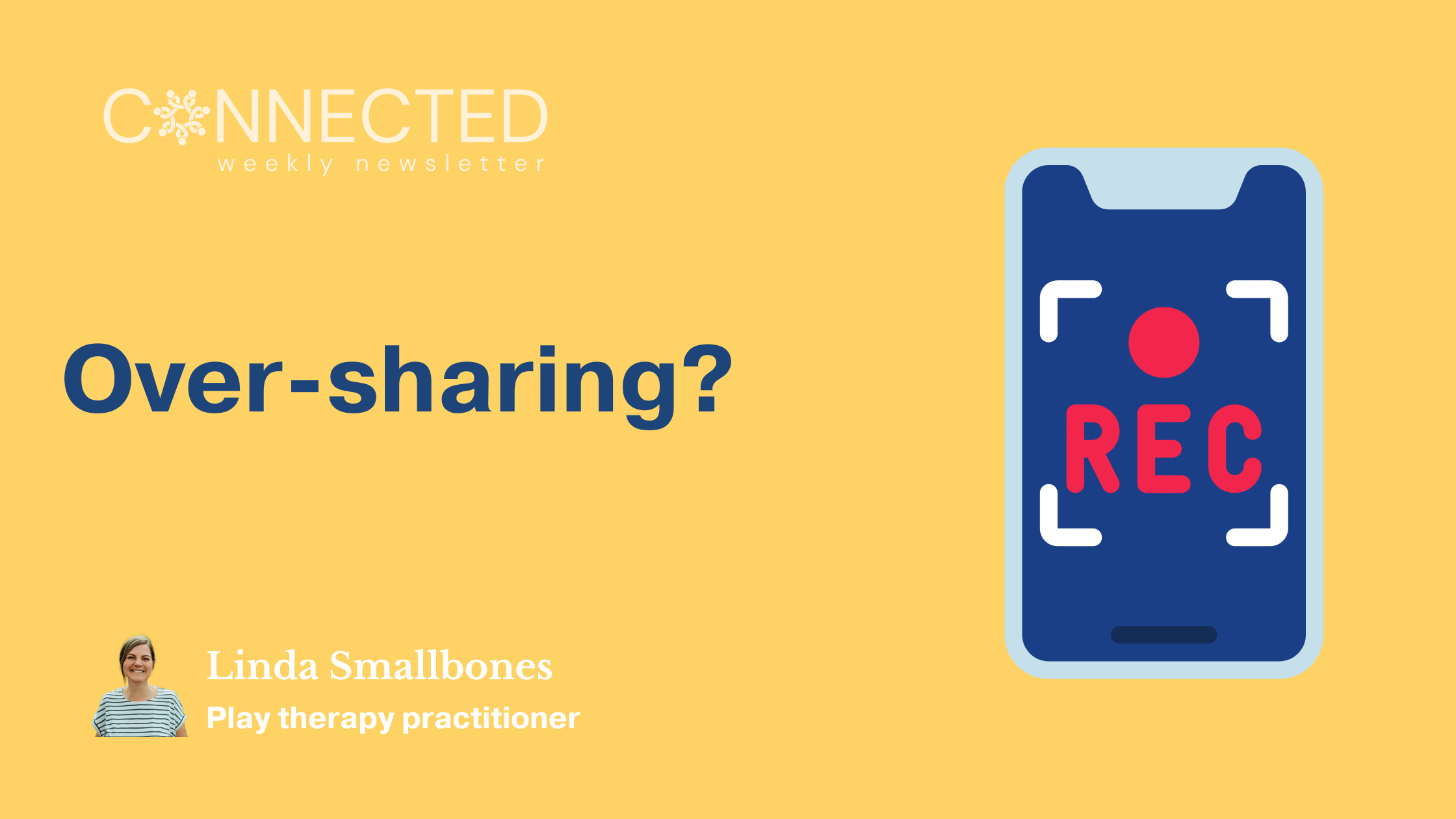Over-sharing?
Our children are people with feelings and the capacity to feel huge shame and regret. They do not need a record out there in this world of their worst moments. They need help with how to navigate those moments.

In recent years, parents have taken to sharing videos of their children in full meltdown on social media and/or via WhatsApp to others.
I want to share some thoughts about this practice. The bottom line is, I do not agree with it. I was not sure if my strong reaction against it was just me, so I spent some time talking with colleagues who are also parents to get there professional and parent opinions. This blog is as a result of my thoughts and these conversations combined.
We all 'lose it' from time to time. Would you like a video of that?
When was the last time you lost it? I can tell you mine, I was under time pressure and I couldn't get a table to fit through a doorway. Yes, really. I couldn't figure out how to move a table from one room to the next and I lost my cool completely; at a table, or the doorway, or maybe at time. I don't even know. And I don't know because I was not being my rational self in that moment. What if someone had whipped out their phone and filmed me in those moments and they had posted that video on social media? Can you imagine how those few moments in time may have defined me as a person in other people's minds?
I really want to challenge you to imagine what your viral meltdown video would look like. And, is it in any way a fair representation of who you are as a person?

Context matters!
When we film a child in the throws of a meltdown or tantrum, we are not being fair. There are contextual factors that people simply are not aware of as they watch a video of some moments in time of a child. Without context, people can become very, very judgemental. And that is also simply not fair.
What if, before the video was taken the parent or adult in the room was being inappropriate or abusive? What if the child was really terrified of something (real or imagined)?
A child's behaviour is information and communication, it does not come out of nowhere no matter how much it may seem that way.
A child in the midst of a meltdown needs our presence and assistance. They're in a vulnerable state. When a child is in meltdown, they are either in a state of sensory overload or emotional overwhelm (or both) which propels them into "flight-or-fight". They are not in control of themselves, they are completely dysregulated and need us to help regulate them again.
The need for co-regulation
It does not matter if the reason they are dysregulated appears to be ridiculous to us. Likely, the small thing was simply the last straw for their nervous system, they ran out of coping skills and they need you to step in and help. This is called co-regulation.
We forget that children do not have fully developed brains, and as such, they do not have all of the mechanisms necessary to regulate their emotions, yet. This takes time and co-regulation. I have written about co-regulation previously here and here and here and most recently here.

Long-term impact
When a photo or video is taken, it can potentially go anywhere to anyone. The motivation needs to be closely examined. How incredibly shaming it could be to think "Who has seen this?" AND, once it is out there, it doesn't go away. What if their meltdown video from when they were 6 years old is a barrier to tertiary education access or job prospects later on? What if people judge them so harshly on a few moments in time that they see this as their whole character?
Videos kept on parents' phones may be used against the child at other times to point out their faults or used to punish them. It could be weaponised to remind the child "look how you behave." This is shaming and demeaning.
Our children look at our phones, they look through our photos and videos. What might the impact on their trust of their parent if they found meltdown videos?
Is there an appropriate time to share videos?
One colleague said that perhaps there is an appropriate place for sharing videos when professionals (such as play therapists/psychologists) need some insight into the realities of what is happening at home. But with the caveat that this is once-off and used for information and not as a tool to manipulate the child or in a way that could jeopardise the therapuetic relationship with the child.
I agree to this, to a certain extent. I will say that if you tell me your child rages and tantrums at home but no one else ever sees it, I will believe you and you do not need to send me evidence. I 100% know that children can show a completely different side at home, and I am aware that I may or may not see that side in the play room. And I don't need to see it with my own eyes to know it is happening. I believe you and I know how difficult it is to live with constant meltdowns. Which may be a reason to film in the first place. I get it.
If you absolutely have to, share it only with a professional you trust and ensure they delete it off their device once watched. Do not share with friends and family. Do not post to social media.
The bottom line
Our children are people with feelings and the capacity to feel huge shame and regret. They do not need a record out there in this world of their worst moments. They need help with how to navigate those moments. I'd love to know your thoughts on this!
What's coming up!
